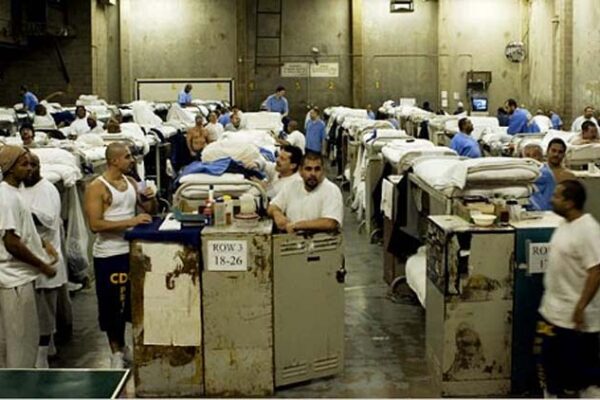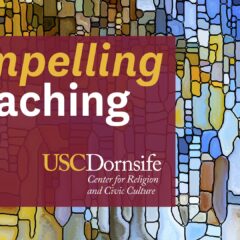This post originally appeared at Trans/Missions, the USC Knight Chair in Media and Religion site.
In his recent state of the state address, Gov. Arnold Shwarzenegger addressed the issue of California’s prison spending relative to its investment in higher education. He called for a constitutional amendment to ensure that the State would have to rectify this imbalance in favor of higher education each fiscal year. That idea may make good political sense, but it overlooks that fact that students are not the only Californians shortchanged by our spending on prisons.
Religious congregations carry a huge portion of the cost of rehabilitation when prisoners re-enter their communities. Former inmates return to neighborhoods already stressed by the recession, persistent social problems and underfunded institutions, and congregations are often the most viable and stable providers of support services in these areas.
Congregations help mediate between re-entrants and larger society, weaving together a frayed safety net that helps former inmates with a variety of services, from job placement to health-care and housing. They also minister to those who are still incarcerated as well as to their families and provide linkages to the outside world.
But instead of focusing on long-term solutions, myopic politics has once again carried the day, with state legislators and university administrators lauding the visionary nature of the Governor’s proposal. Karen Bass, Speaker of the House, was at least able to point out that the proposed constitutional amendment does little to reduce recidivism or tackle sentencing reform. Others have pointedly noted that projections of future prison-populations are based on grade-school reading levels, not access to higher education.
Beyond the sizzle of a sexy idea that has taken two disconnected funding streams and woven them together for political posturing lies the question: Who is calculating the real cost of incarceration and reentry that is being shouldered by the rest of society, most notably by religious groups that step in to fill the gaps as best they can?
This issue will stay with Californians for years, well beyond Schwarzenegger’s tenure, and as always we need journalists to hold our politicians accountable for the merits and liabilities of their policies. Toward that end, we need more investigative reporting that will help us understand the root causes and consequences of recidivism–as well as the role congregations play in addressing urgent needs that our elected officials are content to ignore as long as we allow them to do so.
Brie Loskota is the former executive director (2016-2021) of the USC Center for Religion and Civil Culture.







